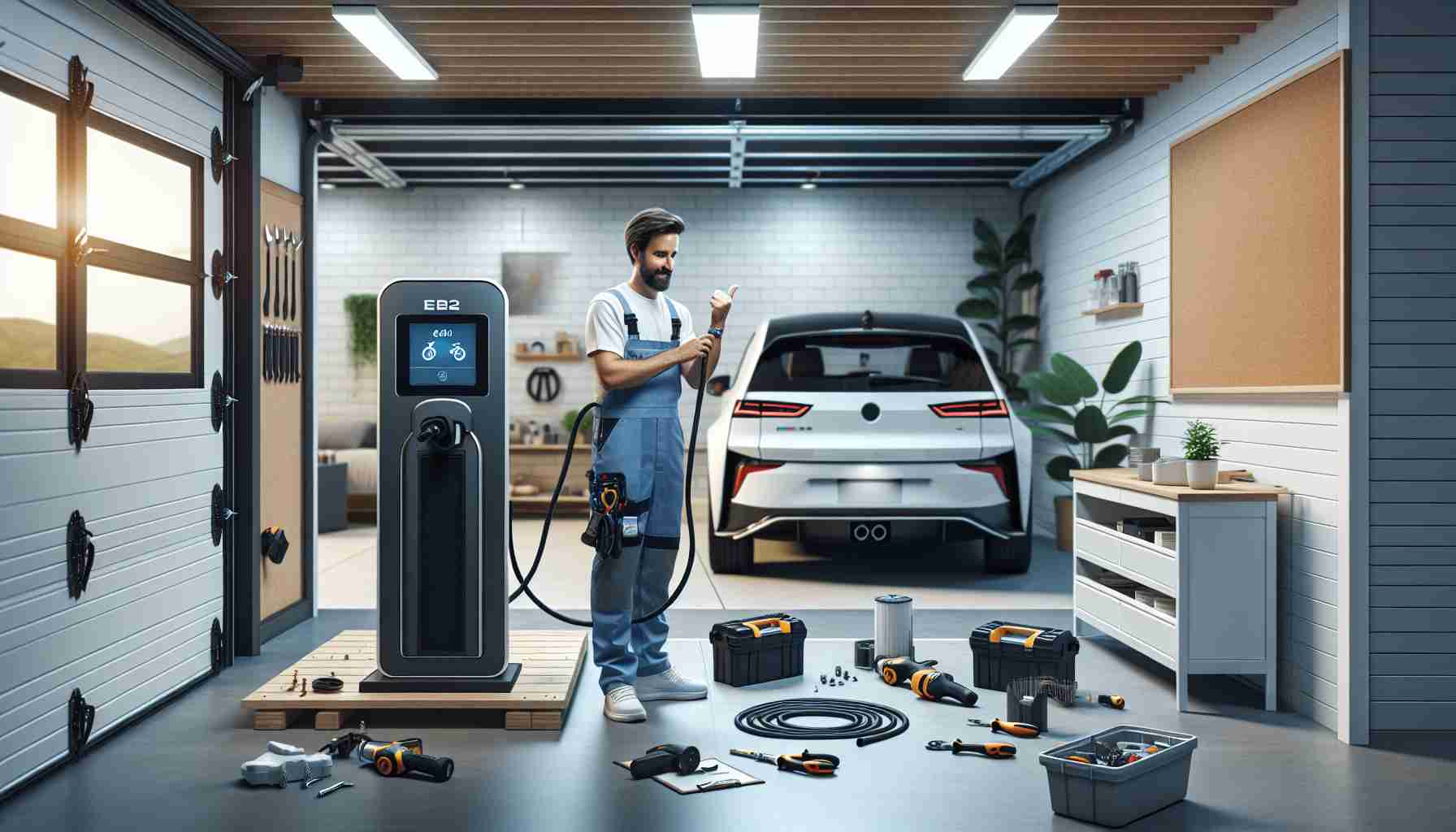
Not long ago, I was skeptical about the need for a home charger after buying my electric vehicle (EV) in early 2022. However, my perspective completely shifted after facing unexpected challenges.
In the beginning, I enjoyed easy access to public charging stations nearby, particularly since one was conveniently located just a block away. The costs were reasonable, and it seemed pointless to invest in a home setup, especially given my complex parking situation. Without a garage and with my parking spot far from my electrical panel, the prospect of installation seemed daunting and costly.
However, circumstances changed dramatically when my preferred public charging station was temporarily closed for renovations. A few costly parking fines from utilizing alternative public charging services made me rethink my options. Public charging often required long waits and limited access during peak hours, leading to a frustrating experience.
Eventually, I decided to purchase a Level 2 charger, which connects to a dedicated 240-volt circuit and can rapidly charge my vehicle overnight. After some research, I chose a durable model designed for harsh winter weather and had a skilled electrician handle the installation.
Now, charging has become a breeze. My electricity costs after 7 p.m. are astonishingly low, significantly reducing my expenses compared to public charging. Plus, I’m gaining the convenience and peace of mind that my EV is contributing positively to our grid. It turns out that investing in home charging was the right decision after all!
Why Every Electric Vehicle Owner Should Consider a Home Charger
The Rise of Home Charging Solutions
As electric vehicles (EVs) continue to gain popularity, many owners are reevaluating their charging options. While public charging stations can seem convenient at first, the increasing number of EV owners highlights the need for home charging solutions. Installations like Level 2 chargers are becoming a staple for those looking to maximize convenience and minimize expenses, particularly in urban settings without dedicated parking or garages.
Understanding EV Charging Levels
EV chargers come in various types, primarily categorized into Level 1 and Level 2 charging:
1. Level 1 Charging: Typically uses a standard 120-volt outlet, charging very slowly (around 4 to 5 miles of range per hour).
2. Level 2 Charging: Utilizes a 240-volt outlet, providing a much faster charging experience (about 25 to 30 miles of range per hour). This is ideally suited for overnight charging at home.
Understanding these charging levels is crucial for potential EV owners when considering their charging infrastructure at home.
Benefits of Home Charging
– Cost Savings: Charging at home, especially during off-peak electricity hours, often results in lower costs compared to public stations, which can charge higher rates.
– Convenience: With a home charger, there’s no need for time-consuming trips to public charging stations. You can plug in your vehicle conveniently overnight and start each day with a fully charged battery.
– Enhanced Battery Health: Regular home charging can be more controlled, offering a consistent charging routine that may benefit the longevity of your EV’s battery.
Limitations of Home Charging
While there are numerous advantages, home charging does have its limitations:
– Installation Costs: Although prices for home charging units have decreased, the initial installation can still be a significant investment, especially if electrical work is necessary.
– Wiring and Space Requirements: Your home must be equipped to handle a higher voltage outlet, which might not be feasible for all units, particularly those without garages.
Factors to Consider Before Installation
– Electric Panel Capacity: Check whether your electrical panel can handle an additional 240-volt circuit.
– Local Incentives: Many regions offer financial incentives or rebates for installing EV chargers at home, potentially reducing upfront costs.
– Homeowner Associations (HOAs): If you live in a community with an HOA, ensure that you understand any rules or restrictions regarding EV charger installations.
Market Trends in Home Charging
The demand for home charging solutions is on the rise. According to industry reports, the market for home EV chargers is projected to grow significantly as more consumers transition to electric vehicles. Innovations in smart charging technology are also making it easier for owners to monitor and optimize their charging schedules, which can further enhance cost savings.
Conclusion: The Future of Home Charging
As the EV market expands, the paradigm around charging is shifting. Many users find that investing in a home charging setup provides long-term value, offering convenience, cost savings, and peace of mind. With the right planning and investment, homeowners can enjoy seamless EV ownership and contribute positively to energy consumption patterns.
For more information on electric vehicles and home charging options, check out energy.gov.



